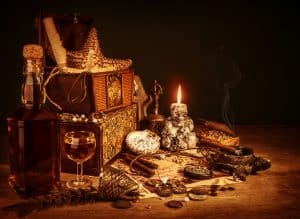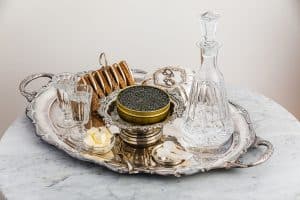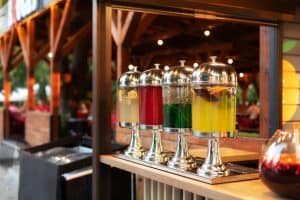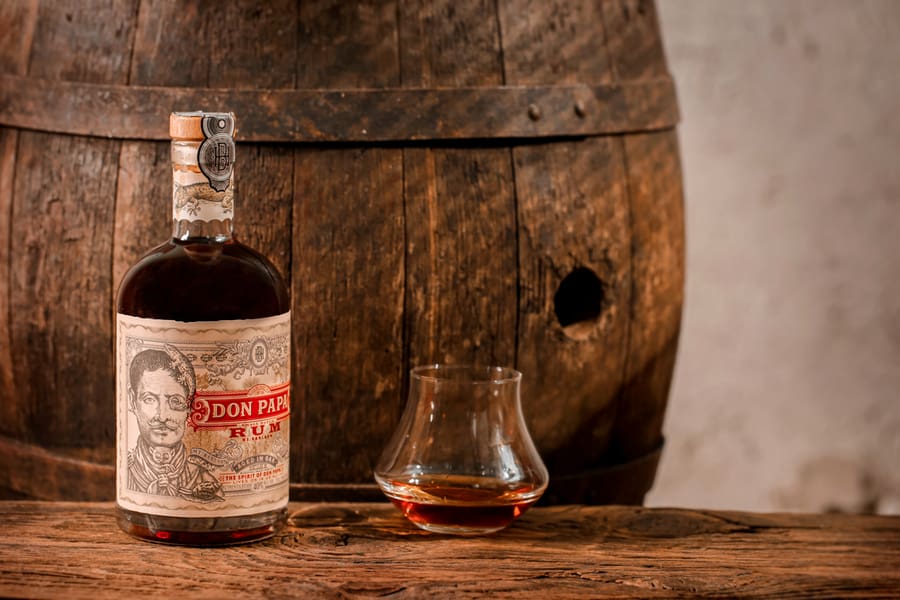
You forgot about that bottle of whiskey you opened on your birthday last year, and thankfully, being the optimist you are, it is still half full.
How long does whiskey last once it is opened?
A sealed bottle of whiskey will last for many decades under the right circumstances. However, once a bottle of whiskey is opened, the alcohol will start to evaporate, and nature, through oxidation, will take its course.
A half-full bottle of whiskey will last between a year and two years. Once you slip past the half-full mark, time is not on your side—a quarter-full bottle may last between three and four months.
We’ll use a full, sealed bottle of whiskey as our yardstick and compare it to a half-full and quarter-full bottle. All hope is not lost because we’ve prepared some excellent tips to help you store your whiskey correctly and get the most out of each bottle without sacrificing too much to nature.
How Long Does an Opened Whiskey Bottle Last?
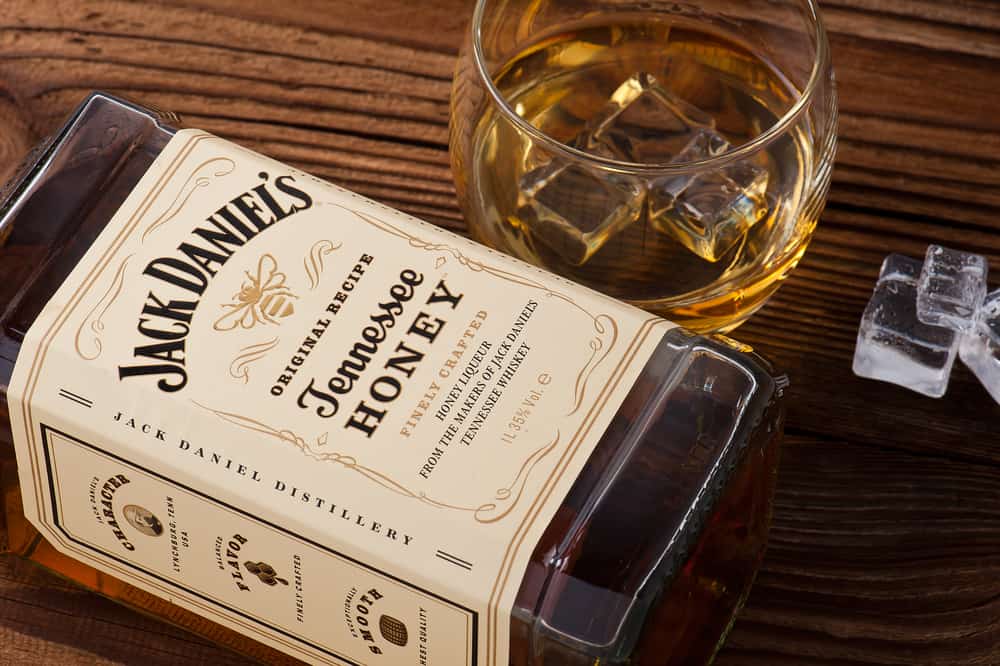
Before we look at how long an opened bottle of whiskey can last, we need to factor in how long a sealed bottle will last.
Using the sealed bottle of whiskey as our yardstick, we can compare it to opened bottles.
Unopened Bottles
An unopened bottle of whiskey will outlive all of us. This is because of a few reasons:
- The whiskey is sealed in a bottle at the distillery
- There’s almost no space for air to corrupt or oxidize the product (the link provides excellent information for the brainiacs among us)
- The whiskey’s high alcohol content prevents bacterial growth inside the bottle
- Because the whiskey has almost no sugar, it cannot spoil.
Some factors will play a role in the demise of a sealed bottle of whiskey, though:
- UV rays from direct sunlight will change the whiskey’s color—whether it is closed or not
- Temperature fluctuations can cause the whiskey to expand and contract, which means it can get spoiled in the long run
- Tying in with the point above, if the whiskey is sealed with a cork, the cork can dry out and eventually allow air into the bottle, leading to spoiled whiskey. The whiskey can also eat away at the cork if the bottle is stored on its side, leading to deterioration and oxidation.
Half-Full Bottles
The moment you open a bottle of whiskey, the clock starts ticking. Although you won’t notice a change overnight, it will be exposed to air and oxidation. Most experts agree that a half-full bottle of whiskey will last about one to two years.
Once a bottle of whiskey is opened, the alcohol evaporates, producing a smoother taste. Usually, it is a good thing to have smoother-tasting whiskey.
Still, the whiskey will also start to oxidize—the oxygen in the air will react with certain compounds, altering their taste and, ultimately, the whiskey’s overall taste.
Some people also decant their whiskey to ‘breathe’ or let the alcohol evaporate and smoothen the taste.
Unfortunately, oxidation is an unpredictable process—sometimes, it aids the whiskey in developing other exciting and appealing tastes, but other times the whiskey will taste worse.
Tell-tale signs of (bad) oxidation may include a metallic taste, a sour taste, or the whiskey tastes strange and off-putting.
Quarter-Full Bottles
Once you’ve passed the halfway mark, a bottle of whiskey may last for three or four months. Remember, the more air in the bottle, the more your whiskey is exposed to oxygen.
Tips for Storing Whiskey Properly
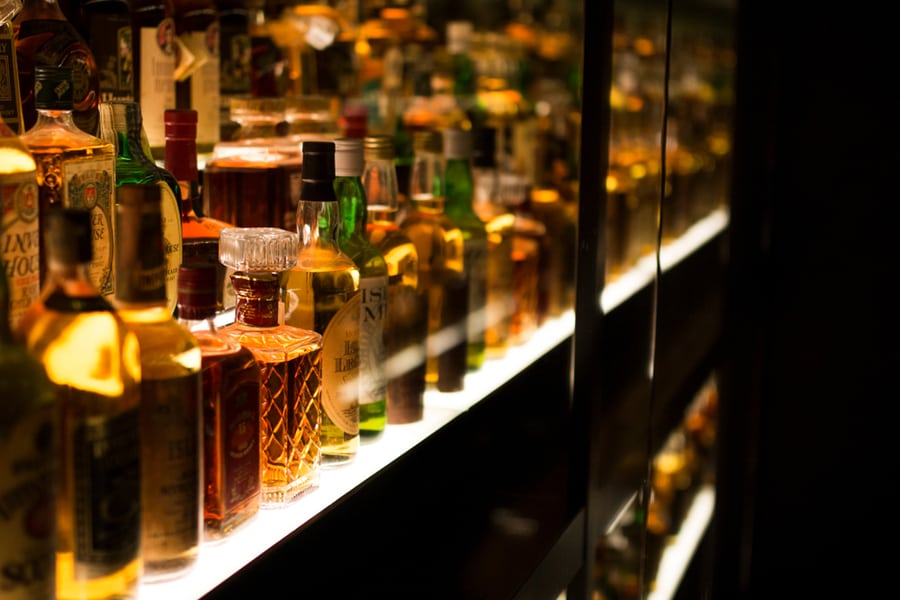
First and foremost, if a bottle is sealed and you intend to wait to drink it, always keep it sealed. The distillery’s original seal is airtight and won’t let your whiskey go bad.
If you notice some condensation on the inside of the bottle, don’t stress, it means your whiskey is adequately sealed, and oxygen isn’t entering or escaping from your bottle.
1. Temperature & Light
We cannot stress enough that exposure to light and temperature fluctuations will kill your whiskey. Sunlight and heat are two of the worst things you can expose your whiskey to, so keep it on the bottom shelf of a cabinet or the pantry.
If you have a cellar, basement, or root cellar, these spots will be perfect for storing your whiskey because they are not exposed to temperature fluctuations and light. However, a damp basement is not ideal.
If you are a serious whiskey collector, invest in a wine fridge to keep your precious bottles at a constant temperature.
Remember, if you store whiskey in a cool spot, it might get a cloudy appearance. A hazy appearance is nothing to worry about, and this should right itself as soon as the whiskey has reached room temperature again.
But if the cloudiness persists, tossing that bottle’s contents is best.
2. Bottle Position
Always store the bottles upright—the whiskey can eat away at the cork, eventually leading to evaporation and oxidation.
3. Freezer Is a No-Go
Never store whiskey in the freezer. Putting your bottle(s) in the freezer will dull the taste. If you take a bottle straight from the freezer, the extra cold whiskey will numb your taste buds—for good or bad—and you won’t be able to appreciate the full spectrum of flavors and aromas.
4. Take Care of the Corks
Over time corks and screw caps can loosen, so make a point of retightening your corks and caps to prevent oxidation and deterioration.
5. Transfer It Into Smaller Bottles
You can also extend the life of your opened bottle of whiskey by pouring it into smaller bottles—the less air there is to interact with your whiskey, the longer it will last.
In extreme cases, you can put the bottle in a vacuum seal bag and seal it with a vacuum sealer to prevent oxidation. Remember that you need to store your whiskey in an upright position, so make sure the bottle can stand without being compromised or falling over.
6. Don’t Use Decanters for Storing
Do not permanently store the whiskey in a decanter. Although it looks great when you welcome guests to sit down for a dram, nothing is worse than tasting a whiskey that tastes flat and devoid of any complexities.
Conclusion
In short, unopened bottles can last a lifetime or longer with the proper care and attention, half-full bottles will last around a year or two, and quarter-full bottles will last about three or four months.
The best way to prevent your whiskey from going bad is to drink it as soon as possible, but be a responsible drinker. Transferring the contents to smaller bottles can reduce exposure to air.
Remember, whether it is a sealed bottle or an opened one, it should be cared for—avoid temperature fluctuations, exposure to direct or bright sunlight, check the caps or corks for a tight seal, and enjoy your whiskey any way you like, but responsibly.





